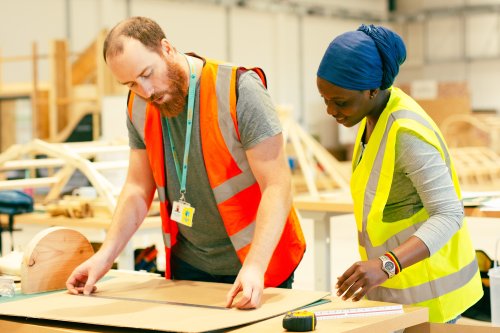
Award-winning courses
Recognised with an Accelerate to Zero Green Skills Award

Changing the construction sector through world-class education, research and industry collaboration
We're playing a crucial role in positioning the UK as a leader in sustainable construction through education, research and industry collaborations that align with the climate emergency and UN Sustainable Development Goals. Our mission is to ensure the UK has the renewable natural resource, internationally recognised expertise, and technical capabilities necessary to be at the forefront of a new approach to delivering a sustainable and resilient built environment. We provide:
With ambitious goals, we're continually expanding our portfolio of skills and training provision, and bringing new talent and training into this ever-evolving industry. All training provision is enriched by collaborative partnerships and an expanding portfolio of research projects with academic credibility, validated by published work and sector impact.
Make the most of essential training to meet industry needs, focusing on climate and better building methods - as outlined in the Timber in Construction Policy Roadmap, released in the UK in December 2023.
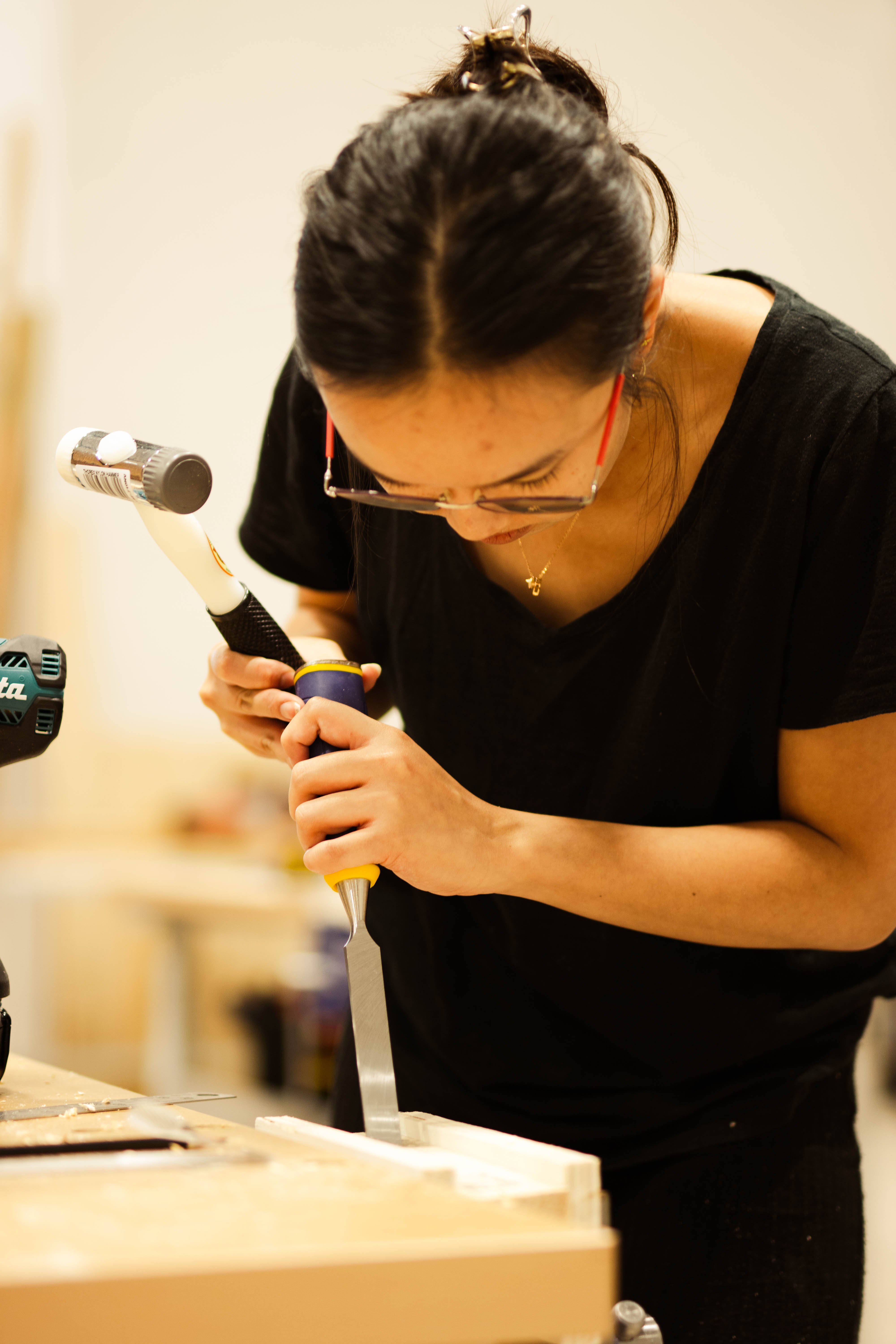

Recognised with an Accelerate to Zero Green Skills Award

Endorsed by the CIOB, CIAT and TDUK for industry excellence

Combined academic and industry expertise

Delivered from an award-winning sustainable campus

Improving the carbon footprint of UK construction

Fitted with performance sensors to inform best practice
The CATT is based at our Construction Excellence ‘Social Value’ award-winning (2023) Skylon campus – it's among the most advanced collaborative workspaces in the UK. Built to demonstrate the principles and benefits of sustainable timber construction, the building is a ‘living lab’ with the latest sensor and monitoring technology built into its fabric.
The building stores 330,000 kg of CO2e and is a beacon for sustainability in the region and beyond. The data gathered by the moisture sensors shows the drying process of the building after the construction phase. The use of additional sensors will enable monitoring of structural and material performance, user experience and occupancy, or energy efficiency and use.
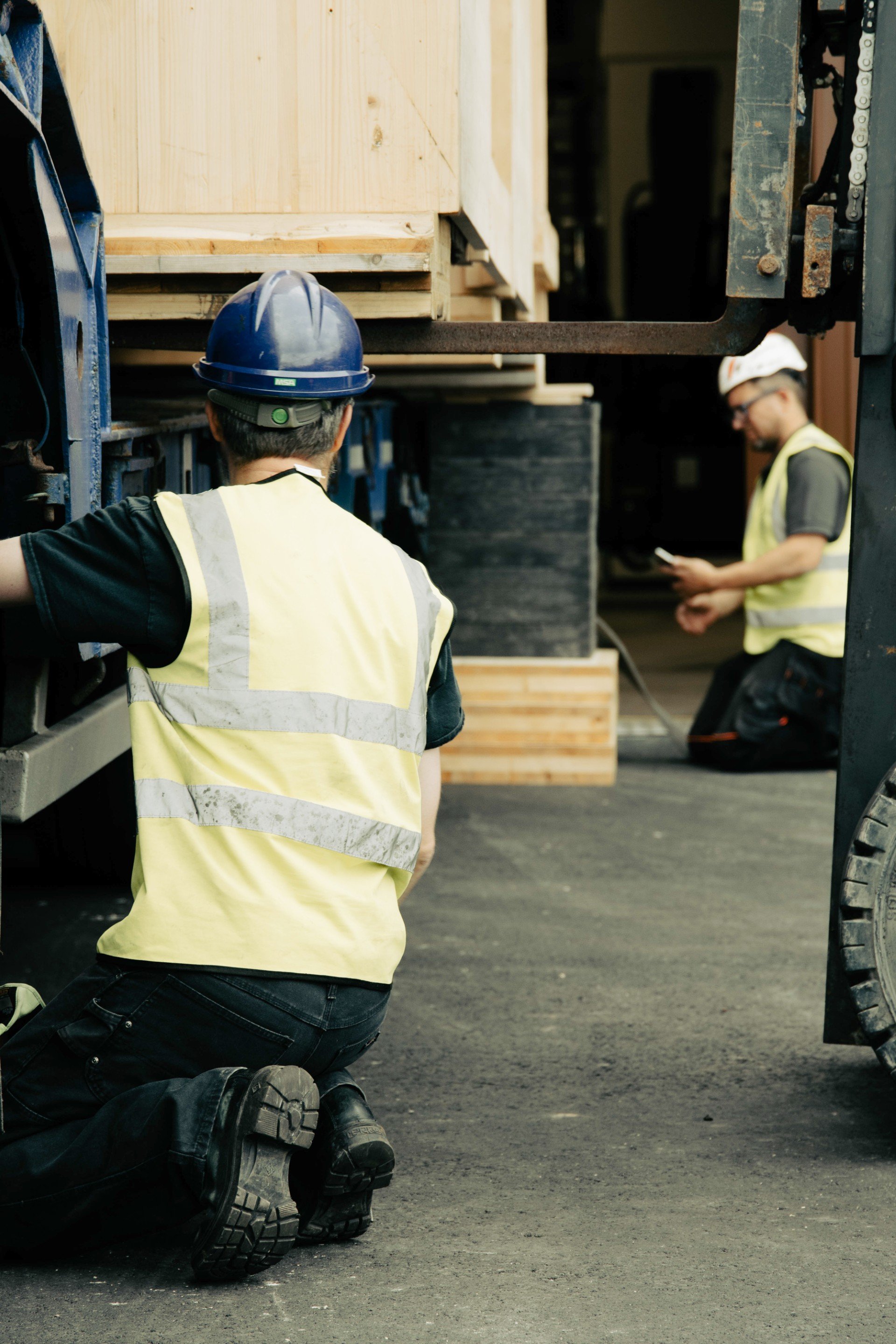
The Construction Industry Training Board estimates that over a quarter of a million new workers will be needed in the construction industry by 2027 to meet demand. Alongside, government and industry sustainability goals, such as the 2050 net zero target, have significant implications for the sector.
Simultaneously the industry is looking towards more sustainable building materials, methods and technologies, such as biogenic offsite manufactured (bio-OSM) construction systems with an emphasis on timber. Besides requiring more workers with new skills, the industry must change its culture toward a more collaborative and interdisciplinary approach.
At the CATT, we're helping to shape this new approach, developing a strong presence within regional industries and the UK as a centre for timber engineering excellence. We welcome visitors and students to our space at Skylon campus to demonstrate and partake in both research and skills training for the construction industry.
We’re leading two important Forestry Commission England research projects, in partnership with Edinburgh Napier University, dRMM Architects, Ecosystems Technologies and Built Environment Smarter Transformation (BE-ST):
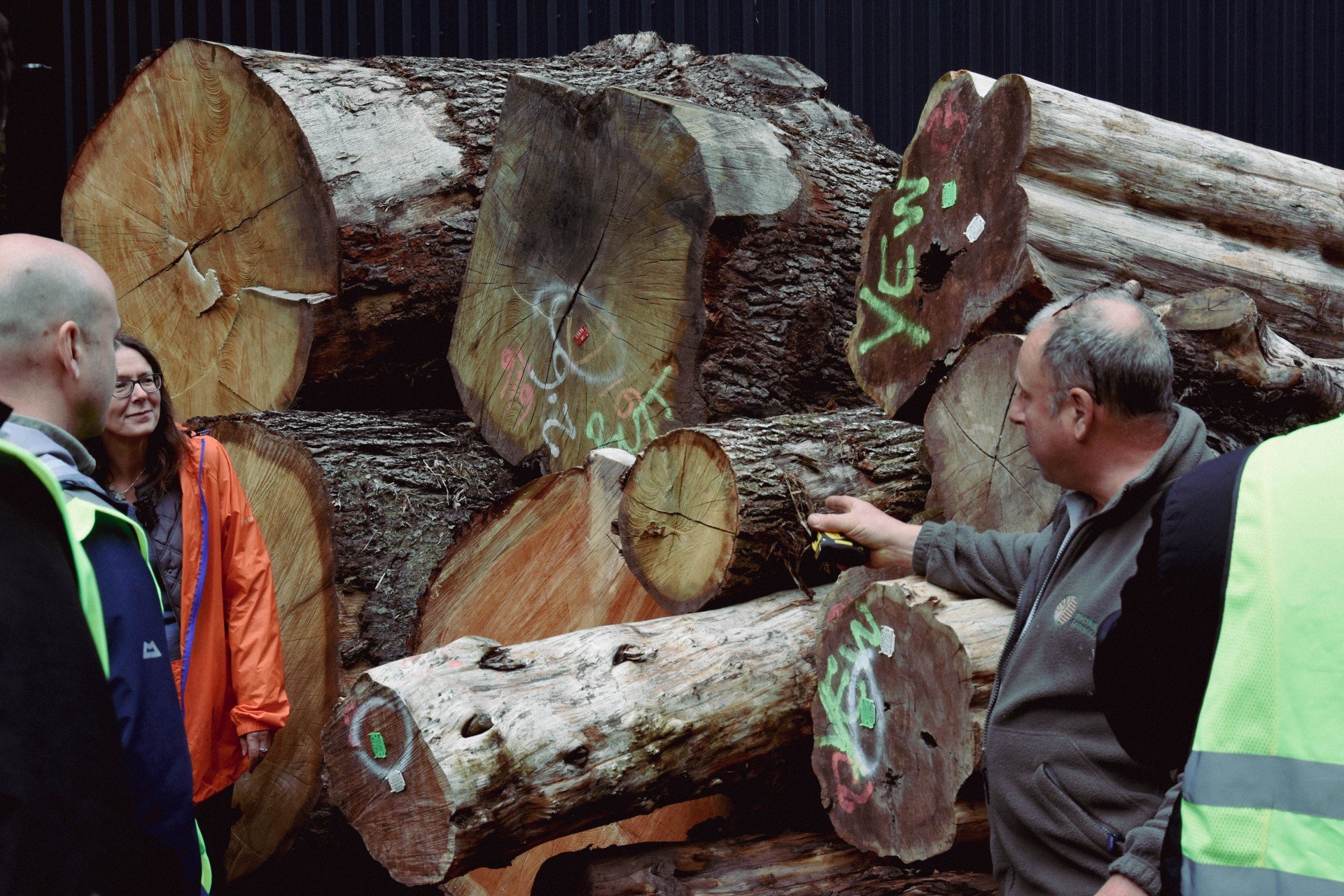
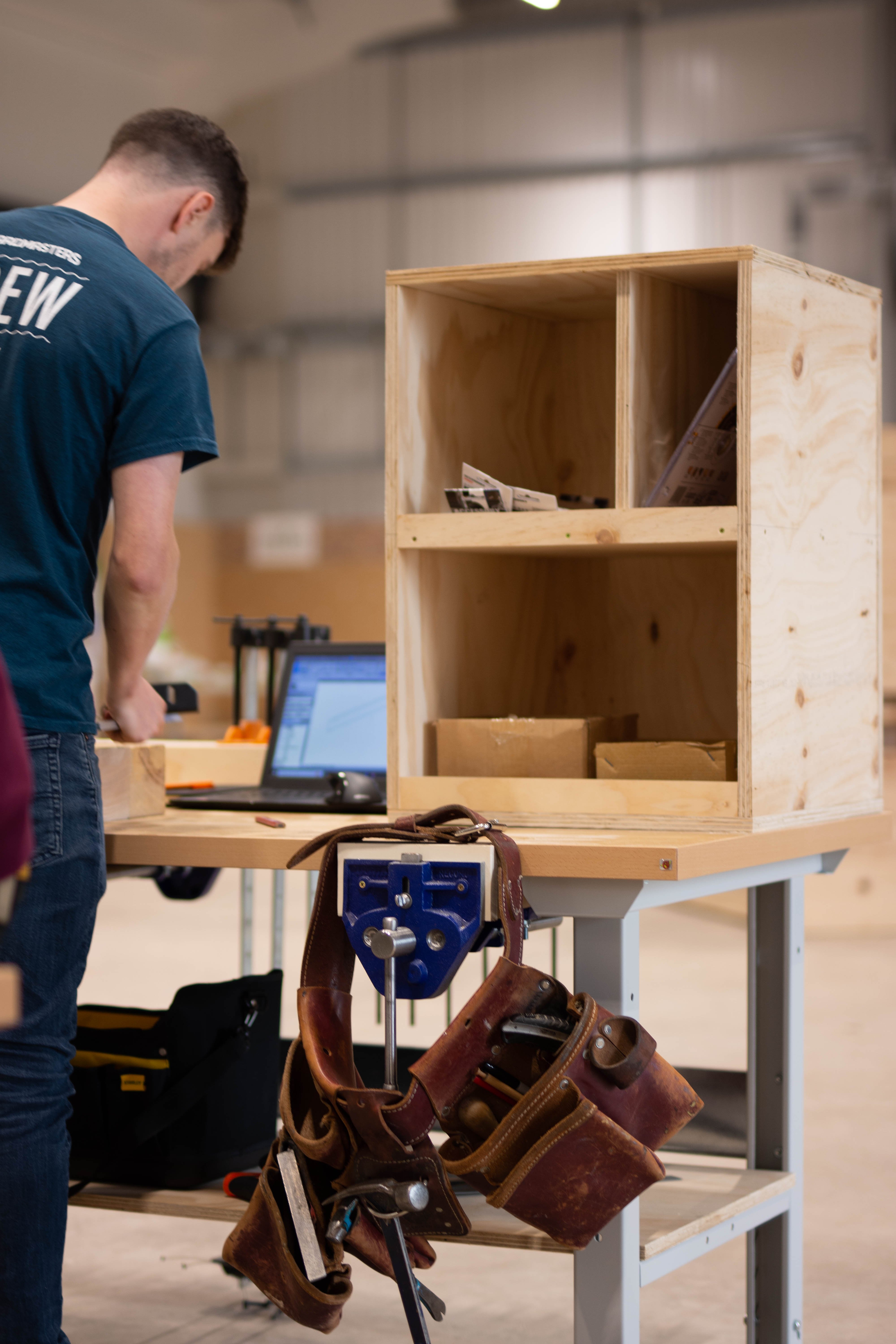
Respond to the climate crisis and advance your career - build ‘better, faster and greener’ on these award-winning courses.
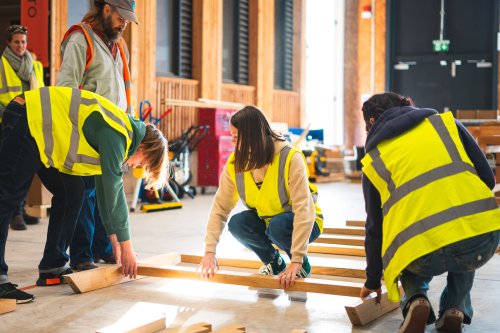
Utilise timber in your built environment designs, understanding materials, sustainability and related context.
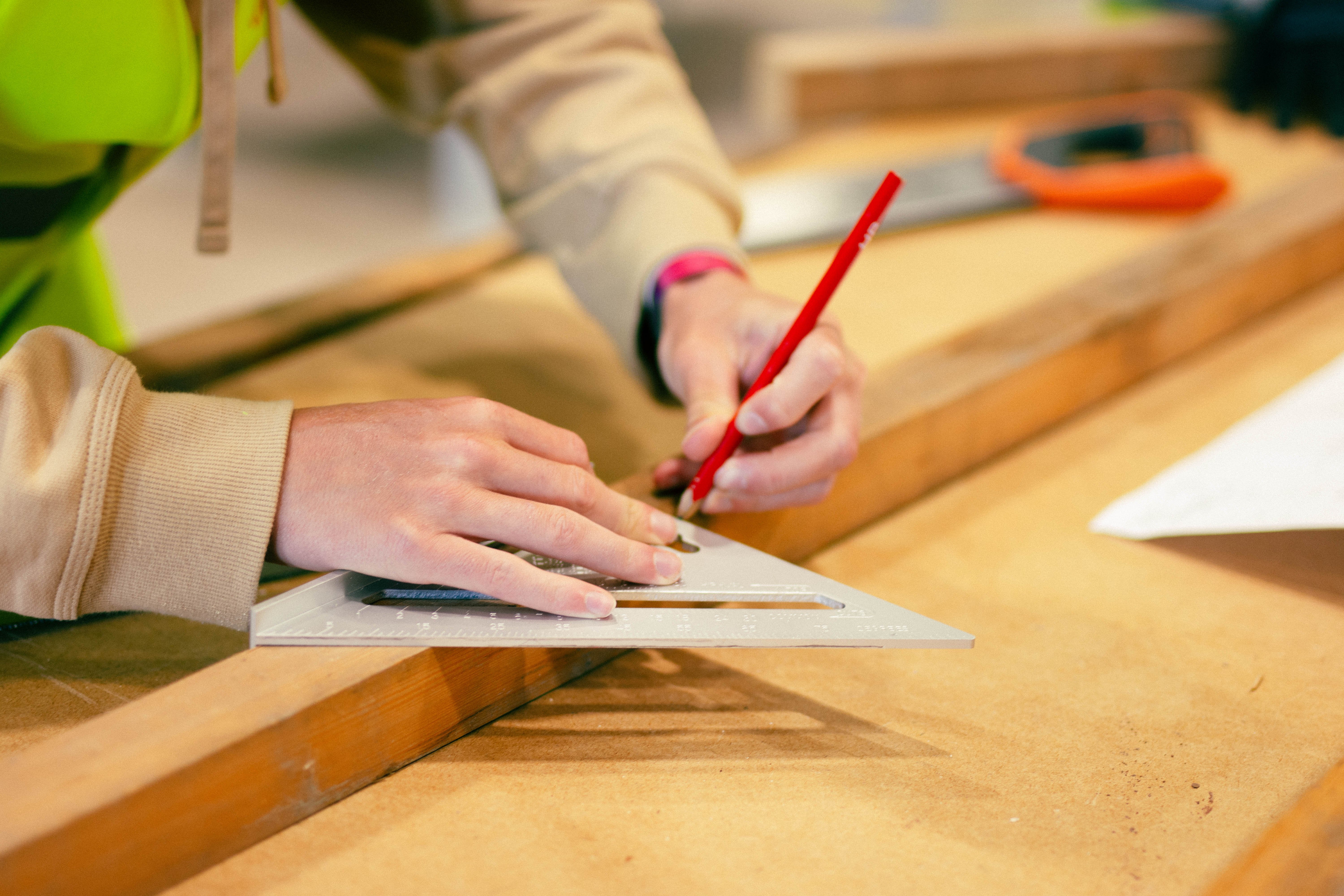
Understand insulation and fabric improvements on this three-day industry-endorsed course.
At the CATT we're accelerating the net zero carbon transition, stimulating regional job and wealth creation. This secures further investment in human capital and the skills required to support a seed-to-building supply chain. It's thanks to the continued support of our expanding partnership network - Edinburgh Napier University, Timber Development UK, Built Environment Smarter Transformation, the Chartered Institute of Builders (CIOB), the Chartered Institute of Architectural Technologists, Rothoblass, Dietrichs and Oakwrights - that we're able to have this impact.
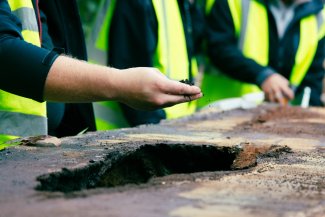
The CATT team combines leading industry and academic expertise in the sustainable built environment, which places them at the forefront of industry influence. Outputs to date have been published in the TRADA Timber Yearbook, at the SEFI Annual Conference, the World Conference on Timber Engineering and The European Society for Engineering Education's 50th Annual Conference.
